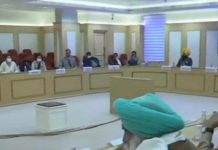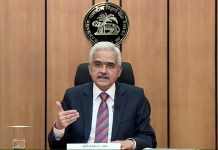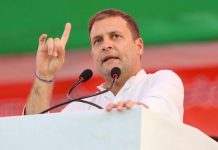Voters no longer have patience for political scions who do not perform
Ajit Sahi

WRITING IN The Indian Express last week, Orissa politician Jay Panda tells us the secret behind his boss’s success. Three factors, he says, have won Chief Minister Naveen Patnaik’s three assembly elections in a row. One, a “remarkable level of sincerity,” reflected in Patnaik’s “monk-like total immersion” in his job; two, a “deep commitment to good governance,” reflected in his rigorous economic management; and three, a “clinical, dispassionate political decision-making process” that Panda claims did away with “intrigue, lobbying, drama, sabotage, subterranean tests of loyalty, unverifiable caste arithmetic, and even kickbacks”, especially in naming candidates for elections.
What Panda doesn’t list is that Naveen Patnaik is also the son of Biju Patnaik (arguably, Orissa’s most charismatic politician ever) on whose death a decade ago Naveen exited elite circles in Europe and entered Orissa’s politics as a 50-year-old novice. Three elections later, it is clear that the electorate has handed Naveen successive wins more for his work than for being his father’s son.
The voter now says, “No matter what your bloodline, you need more than a surname to get my nod.” As Omar Abdullah, now Chief Minister of Jammu & Kashmir, found in 2002, when he lost from his father’s ‘safe’ Assembly seat, and BJP leader Jaswant Singh’s son, Manvendra Singh, discovered this month.
Rahul Gandhi talks of intra-party democracy, which can sweep out dynasties such as his
The Lok Sabha success of the Congress party in Uttar Pradesh this year is credited to Rahul Gandhi’s strategic leadership. Two years ago, the same electorate in the country’s most populous state had handed Rahul a humiliating defeat in the Assembly elections. Yet, despite his spectacular success of 2009, Rahul and his mother, Sonia Gandhi, couldn’t possibly have installed him as Prime Minister, as any move to usurp a position undeserved would surely turn the mood against them. (Incredibly, Rahul now talks of bringing about intra-party democracy, which, if followed through, can only sweep out dynasties such as his.)
This is a big deal, considering how Rahul’s father, Rajiv Gandhi, a first-term MP who had never been minister, was sworn in as Prime Minister in 1984 with no other qualification — not even having won his party an election — other than that he was the son of the just assassinated PM Indira Gandhi.
Indeed, it’s debatable if Lalu Yadav could as blithely replace himself today with his homemaker wife, Rabri Devi, as Bihar’s Chief Minister, as he brazenly did to the nation’s outrage in 1997. That spouses, sons and daughters must work hard is evident in the South, where the various children of DMK president and Tamil Nadu Chief Minister M Karunanidhi, from his three wives are forced to slice up the party cadres as their factions.
Remember the TDP of Andhra Pradesh? In 1996, the party rank and file revolted against their venerated chief NTR, who had founded the party 13 years earlier. His son-in-law, Chandrababu Naidu, ousted NTR when NTR began imposing on the party his second wife, who was widely seen as a gold digger.
Son or nephew, cadres and voters want leaders to ably further their vested interests. So, Shiv Sena chief Bal Thackeray’s son Uddhav hasn’t had the same traction with voters as has the old man’s renegade nephew, Raj, who is now usurping the alma mater’s nationalist slogan and votes. Finally, voters expect principled politics and development even from a dynasty, as the father-son duo of former Prime Minister HD Deve Gowda and HD Kumaraswamy found out last year, after their humiliating defeat in the Karnataka Assembly elections.










